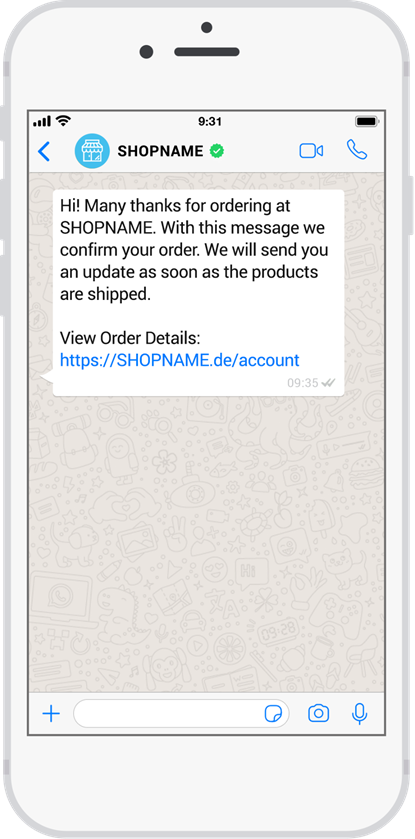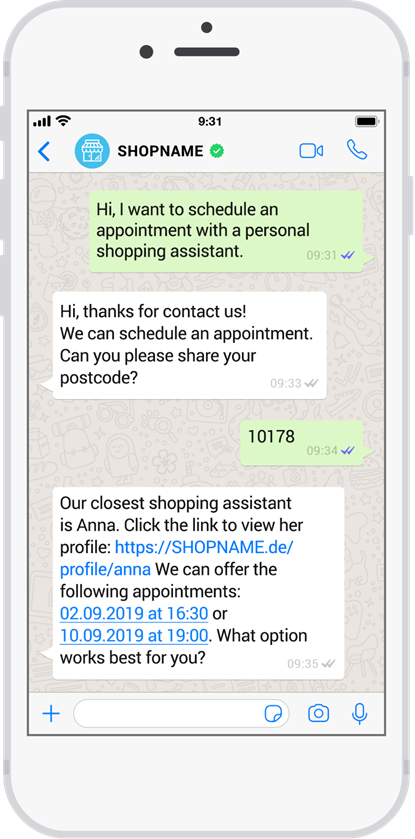What type of messaging is supported on the WhatsApp Business API?
WhatsApp came up with a balanced way to protect user experience and allow enterprises to design efficient user journeys.
WhatsApp Business API differentiates between two types of communications:
Business-initiated conversations
Companies can initiate a customer interaction by sending templated messages, such as:
- Marketing contents: promotional messages, product announcements and other messages that increase awareness and engagement with your business
- Authentication contents: allowing your business to send one-time passcodes / verification codes to verify customer transactions or logins.
- Utility contents: shipping & order updates, payment confirmations, reminders, alerts and more.
When you want to start communicating with an end user, you must create a Message Template. Once you send a templated message, you fill variable data like placeholders for first and last name. Every message template must be approved by WhatsApp before it can be used.

Support Window (user-initiated conversation)
Each time an end user sends a message to a WhatsApp Business Account, the business has a 24 hour “support window” to reply to the end user with a message. Enterprises are free to personalize and design the communication without any approval needed or third party editing. Support windows are applicable for customer service, feedback, surveys, and more.

ℹ️ During this period, the use cases can be expanded to marketing and promotional messages. However, companies need to avoid overwhelming users with promotional messages and sticking to what the user actually has requested. Such policy would avoid that users get annoyed and report the company to WhatsApp.